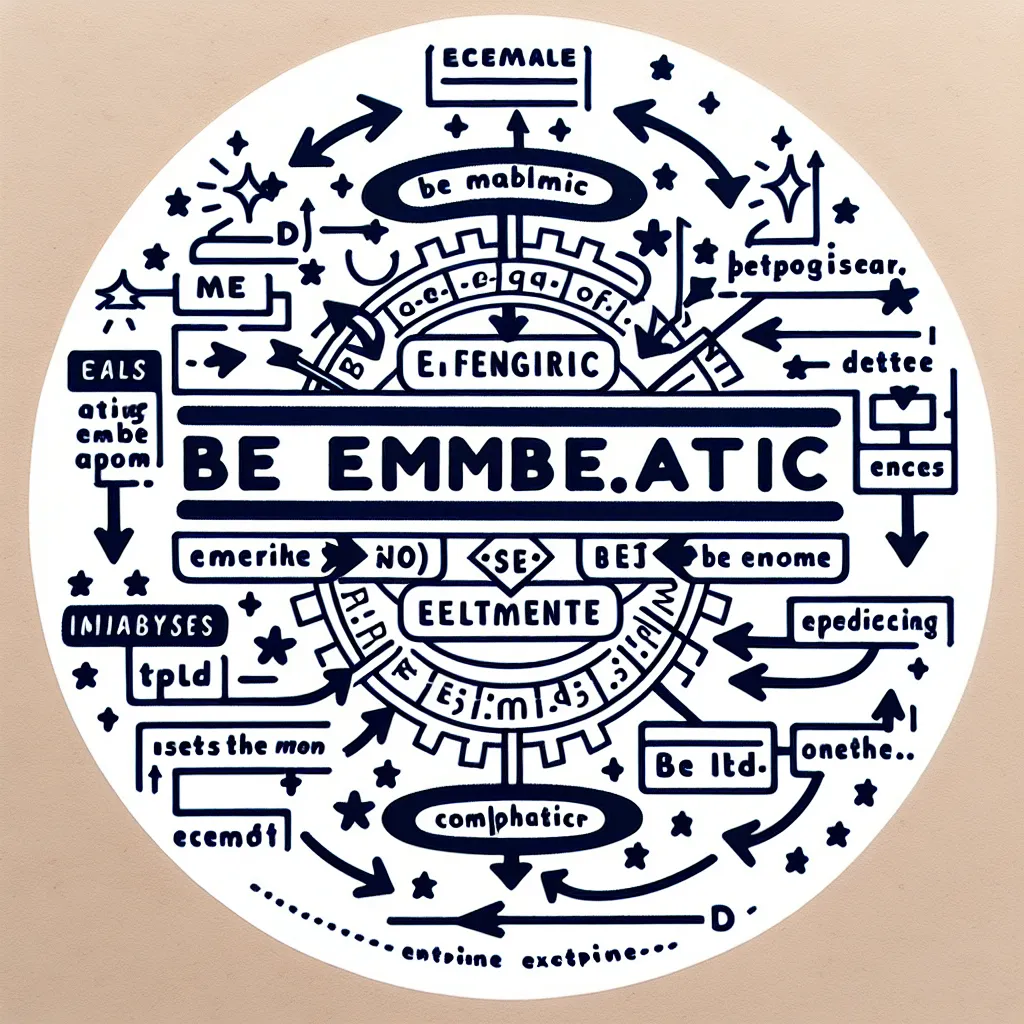The phrase “be emblematic of + noun” is a sophisticated expression that can significantly enhance your IELTS score when used correctly. This structure is particularly useful in the Writing and Speaking sections of the IELTS test, where showcasing advanced vocabulary and grammatical structures can impress examiners. Let’s delve into its meaning, usage, and application in IELTS contexts.
Understanding “Be Emblematic of + Noun”
The phrase “be emblematic of + noun” means to be representative or symbolic of something. It’s used to describe how one thing typifies or stands for a larger concept, idea, or group. This expression is particularly useful when discussing cultural symbols, societal trends, or characteristic features of a place or group.
Grammar and Structure
The basic structure is:
[Subject] + be + emblematic of + [noun/noun phrase]
For example:
- The Eiffel Tower is emblematic of French culture.
- His rags-to-riches story is emblematic of the American Dream.
- The panda is emblematic of China’s conservation efforts.
 Emblematic Structure
Emblematic Structure
Using “Be Emblematic of” in IELTS Writing
In IELTS Writing, particularly in Task 2 essays, using “be emblematic of” can demonstrate a high level of language proficiency. Here are some examples of how you might incorporate this phrase into your writing:
-
In a discussion about cultural changes:
“The rise of social media is emblematic of the shift towards digital communication in the 21st century.” -
When writing about environmental issues:
“The melting polar ice caps are emblematic of the global climate crisis we face today.” -
In an essay about economic inequality:
“The growing disparity between CEOs’ salaries and workers’ wages is emblematic of the widening wealth gap in many developed nations.” -
Discussing urbanization:
“The sprawling skylines of modern metropolises are emblematic of rapid urban development in emerging economies.” -
Writing about technological advancements:
“The smartphone is emblematic of the convergence of multiple technologies into a single, portable device.”
Sample Paragraph for IELTS Writing Task 2
Here’s an example of how you might use this phrase in a paragraph for an IELTS Writing Task 2 essay:
“In recent years, the proliferation of remote work opportunities has been emblematic of a broader shift in the global job market. This trend is not merely a temporary response to the COVID-19 pandemic but is emblematic of a fundamental change in how we perceive the nature of work. The ability to work from anywhere is emblematic of the increasing importance of digital literacy and adaptability in the modern workforce. Moreover, this shift is emblematic of the growing emphasis on work-life balance and flexibility that many employees now prioritize.”
Applying “Be Emblematic of” in IELTS Speaking
In the IELTS Speaking test, using “be emblematic of” can demonstrate your ability to express complex ideas concisely. Here are some examples of how you might use this phrase in different parts of the Speaking test:
-
Part 1 (Introduction and Interview):
Question: “What’s a popular food in your country?”
Answer: “Sushi is emblematic of Japanese cuisine. It’s not just a food, but is emblematic of our culture’s emphasis on precision and presentation.” -
Part 2 (Cue Card):
Topic: Describe a significant change in your hometown.
“The new tech park in my hometown is emblematic of its transformation from a rural area to a hub of innovation. This development is emblematic of the government’s push towards a knowledge-based economy.” -
Part 3 (Discussion):
Question: “How have family structures changed in recent years?”
Answer: “The increasing number of single-child families is emblematic of the changing priorities and economic pressures faced by young couples today. This trend is emblematic of a shift towards quality of life over traditional family size expectations.”
 IELTS Speaking
IELTS Speaking
Common Mistakes and How to Avoid Them
When using “be emblematic of,” IELTS candidates often make the following mistakes:
-
Incorrect preposition: Using “for” instead of “of.”
Incorrect: The kangaroo is emblematic for Australian wildlife.
Correct: The kangaroo is emblematic of Australian wildlife. -
Overuse: While it’s a sophisticated phrase, using it too frequently can seem forced.
Tip: Use it once or twice in an essay or speaking test, not in every other sentence. -
Inappropriate context: Using it for trivial or personal matters.
Inappropriate: My new shoes are emblematic of my fashion sense.
Appropriate: The Great Wall is emblematic of China’s rich history and architectural prowess. -
Forgetting to change the verb form:
Incorrect: This policy be emblematic of the government’s approach.
Correct: This policy is emblematic of the government’s approach. -
Using with abstract concepts instead of nouns:
Incorrect: This situation is emblematic of complicated.
Correct: This situation is emblematic of the complexities in modern diplomacy.
Enhancing Your IELTS Score with Advanced Structures
Using “be emblematic of” correctly can contribute to a higher band score in IELTS, particularly in the Lexical Resource and Grammatical Range and Accuracy criteria. Here’s how it compares across different band scores:
-
Band 6: May use simpler alternatives like “represents” or “is a symbol of.”
Example: “The koala represents Australian wildlife.” -
Band 7: Might use “be emblematic of” but with less confidence or in limited contexts.
Example: “The koala is emblematic of Australian wildlife.” -
Band 8-9: Uses “be emblematic of” confidently and in various contexts, possibly with more sophisticated subjects and objects.
Example: “The preservation efforts for the koala are emblematic of Australia’s commitment to biodiversity conservation in the face of climate change.”
Conclusion
Mastering the use of “be emblematic of + noun” can significantly enhance your IELTS performance. It’s a versatile phrase that can be applied to various topics, from culture and society to technology and the environment. Practice incorporating this structure into your writing and speaking to demonstrate a high level of English proficiency. Remember, while it’s important to use advanced structures, balance is key. Use this phrase thoughtfully and in appropriate contexts to maximize its impact on your IELTS score.
For further practice, try using “be emblematic of” in essays about global issues, technological advancements, or cultural changes. These topics frequently appear in IELTS tests and provide ample opportunities to showcase this sophisticated structure.
To learn more about describing cultural events, which often provide excellent contexts for using “be emblematic of,” check out our guide on how to describe a famous festival celebrated in your region.


